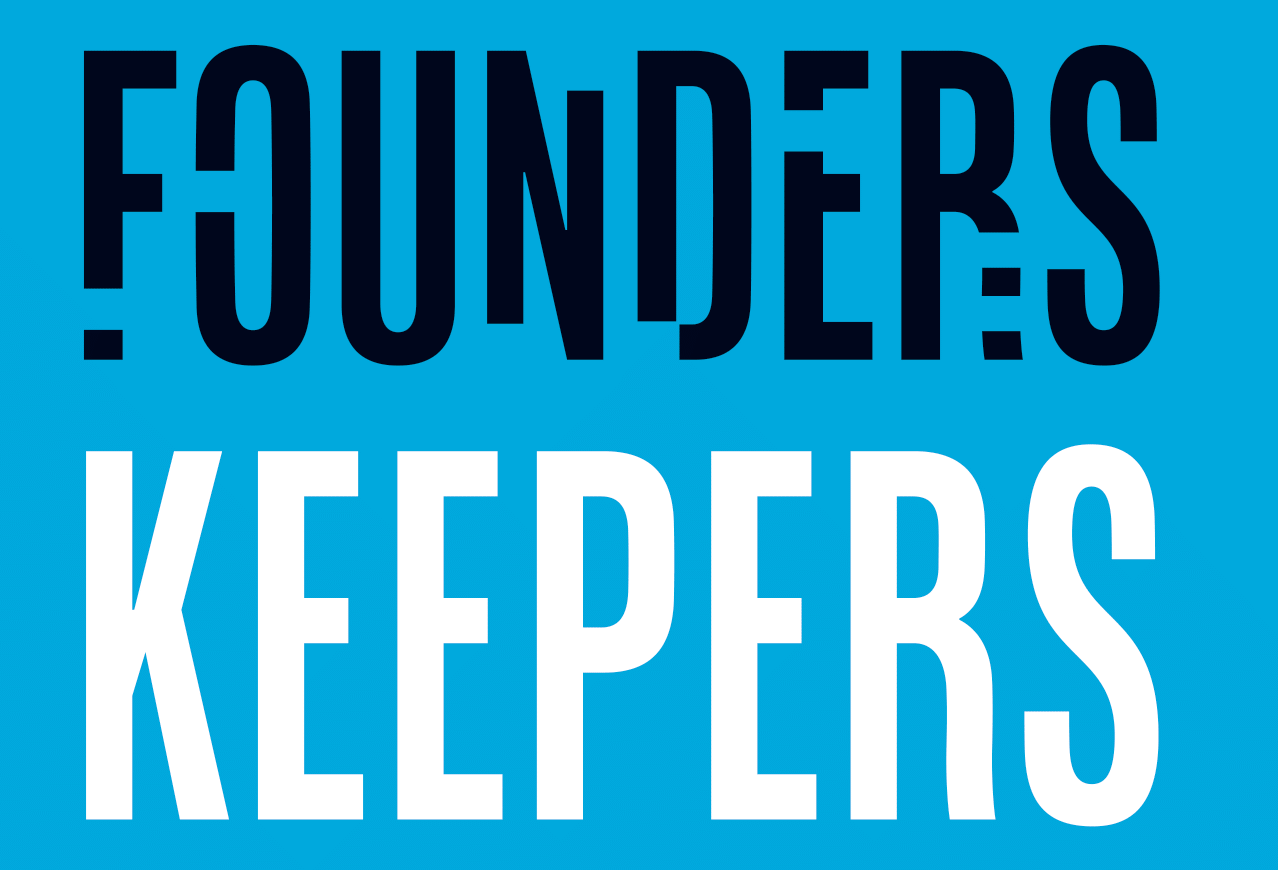Article
Are You Leading Assertively, or Just Commanding Compliance?
December 12, 2024

Leadership is not about having all the answers, nor is it about being the loudest voice in the room. Yet, many leaders confuse authority with aggression, mistaking dominance for effectiveness. But let me ask you this: If you weren’t in charge—if your title were stripped away—would people still choose to follow you?
That’s the real test of leadership. It’s not about how many people obey your orders; it’s about how many are inspired to join you in pursuit of a shared vision. Assertiveness—when done right—creates that inspiration. It’s not forceful. It’s not loud. It’s clear, confident, and deeply rooted in respect for others.
Aggression may yield short-term results, but assertiveness builds something far more powerful: trust. So, the question isn’t just whether you’re leading; it’s how. The following blogpost summarizes what our sample of over 200 “Best Leaders” do differently.
All of our conclusions come from our proprietary research and highlights why assertiveness of one of the most important characteristics of outstanding leaders. This comes from the data folks!
1. Assertiveness Starts with Respectful Directness
The best leaders are clear about their expectations, but they’re just as clear about their respect for the people they lead. They don’t shy away from tough conversations, but they approach them with intention. Their words focus on the issue, not the person. They’re not just communicating—they’re connecting.
The strongest leaders aren’t the ones with all the answers—they’re the ones who ask the best questions. Assertiveness isn’t about dominating the conversation; it’s about creating space for dialogue. It’s about being confident enough to listen, even when the feedback is uncomfortable.
Key Takeaway: Feedback and dialogue are not threats to assertiveness; they’re essential elements of it. Leaders who create space for collaboration and debate cultivate innovation and build trust through inclusion. 3. Consistency and Fairness Build Foundations of Trust
Leadership thrives on consistency. When people know what to expect from you—when your principles guide your actions—you create a foundation of trust. Assertiveness requires that your words and actions align every single time.
Key Takeaway: Fairness and consistency are the bedrock of assertiveness. Leaders who are predictable in their principles and actions foster loyalty and trust, creating stability in their teams. 4. Emotional Intelligence: The Unsung Hero of Assertiveness Assertive leaders know that the way you say something is just as important as what you say. Emotional intelligence allows them to navigate sensitive issues with tact and empathy, ensuring their words land with impact—not injury.
Key Takeaway: Emotional intelligence transforms assertiveness into a tool for connection. By balancing honesty with empathy, leaders ensure their communication motivates rather than alienates. 5. Assertive Leaders Are Clear and Honest
Clarity is a gift. Assertive leaders ensure their teams always know where they stand and what’s expected. They eliminate guesswork, replacing it with straightforward communication and actionable feedback.
Key Takeaway: Honesty and clarity are non-negotiable for assertive leaders. By eliminating ambiguity and owning mistakes, they build credibility and foster a culture of accountability. 6. Confidence Without Arrogance Inspires Loyalty
True confidence is quiet, steady, and inclusive. Assertive leaders inspire loyalty because they lead with competence, not arrogance. They make decisions with conviction, but they never belittle or dismiss others.
The Big Question: Are You Inspiring or Intimidating?
Aggression may push people to act, but assertiveness inspires them to excel. When you lead with respect, clarity, and confidence, you create a culture of trust and collaboration—one where people don’t just work for you; they work with you. So, which kind of leader are you? Share your thoughts in the comments. Let’s rethink leadership together.
That’s the real test of leadership. It’s not about how many people obey your orders; it’s about how many are inspired to join you in pursuit of a shared vision. Assertiveness—when done right—creates that inspiration. It’s not forceful. It’s not loud. It’s clear, confident, and deeply rooted in respect for others.
Aggression may yield short-term results, but assertiveness builds something far more powerful: trust. So, the question isn’t just whether you’re leading; it’s how. The following blogpost summarizes what our sample of over 200 “Best Leaders” do differently.
All of our conclusions come from our proprietary research and highlights why assertiveness of one of the most important characteristics of outstanding leaders. This comes from the data folks!
1. Assertiveness Starts with Respectful Directness
The best leaders are clear about their expectations, but they’re just as clear about their respect for the people they lead. They don’t shy away from tough conversations, but they approach them with intention. Their words focus on the issue, not the person. They’re not just communicating—they’re connecting.
- Clarity Without Hostility: Consider this: A leader calmly says, “This project is falling behind schedule—what do you need to get back on track?” Compare that to someone snapping, “Why isn’t this done yet?” One creates alignment; the other creates anxiety. A team member once shared about their leader, “They never leave anyone guessing, but they never make you feel small.” That’s the kind of clarity that inspires trust.
- Respect for Boundaries: Assertive leaders respect the people around them. I’ve seen leaders start conversations with, “How’s your workload? Can we discuss balancing this priority with your other responsibilities?” Feedback often highlights leaders who “make requests in a way that respects others’ boundaries and capacities,” which builds mutual respect.
- Proactive, Not Reactive:
Leaders who practice assertiveness address problems before they escalate. I worked with one executive who often said, “Let’s address this issue now so it doesn’t become a bigger challenge later.” Their team appreciated this proactive approach, saying, “They’re always upfront, but never in a way that makes you feel blamed.”
The strongest leaders aren’t the ones with all the answers—they’re the ones who ask the best questions. Assertiveness isn’t about dominating the conversation; it’s about creating space for dialogue. It’s about being confident enough to listen, even when the feedback is uncomfortable.
- Active Listening: Assertive leaders don’t just listen to words; they listen for meaning. I’ve seen leaders paraphrase feedback like, “If I’m hearing you correctly, you’re saying we need to adjust the timeline to maintain quality. Let’s dig into that.” Team members praised this approach, saying, “They’re upfront but considerate of everyone’s perspectives.”
- Encourage Constructive Debate: Great leaders understand that disagreement is a sign of engagement, not rebellion. I’ve observed leaders say, “I love that you see it differently—how can we use your perspective to strengthen our approach?” Comments described them as “transparent and open to diverse ideas,” which fostered innovation and trust.
- Adapt Decision-Making: Assertive leaders are confident enough to change course when better ideas emerge. One leader I coached responded to their team’s suggestion by saying, “I hadn’t considered that—let’s pivot and incorporate it.” Feedback described them as “decisive yet flexible,” a hallmark of trust-building leadership.
Key Takeaway: Feedback and dialogue are not threats to assertiveness; they’re essential elements of it. Leaders who create space for collaboration and debate cultivate innovation and build trust through inclusion. 3. Consistency and Fairness Build Foundations of Trust
Leadership thrives on consistency. When people know what to expect from you—when your principles guide your actions—you create a foundation of trust. Assertiveness requires that your words and actions align every single time.
- Fair Application of Rules: Leaders who are assertive apply standards consistently while adapting to individual circumstances. I’ve seen executives explain, “We’re making adjustments for specific challenges, but the overall goals remain the same.” Teams described them as “fair and respectful, which builds trust across the board.”
- Transparency in Decision-Making: Assertiveness means being clear about the “why” behind decisions. During a restructuring, one leader told their team, “Here’s why this is necessary and how it aligns with our long-term goals.” The response? Respect and understanding. Employees appreciate leaders who “deliver tough news professionally and transparently.”
- Predictability in Behavior: Consistency is calming. I’ve observed leaders who address issues promptly and fairly, earning their teams’ loyalty. One team member said, “You always know where you stand with them—it’s refreshing and builds confidence.”
Key Takeaway: Fairness and consistency are the bedrock of assertiveness. Leaders who are predictable in their principles and actions foster loyalty and trust, creating stability in their teams. 4. Emotional Intelligence: The Unsung Hero of Assertiveness Assertive leaders know that the way you say something is just as important as what you say. Emotional intelligence allows them to navigate sensitive issues with tact and empathy, ensuring their words land with impact—not injury.
- Reading the Room: Emotionally intelligent leaders observe body language and adjust accordingly. I saw one leader pause mid-discussion to address a quiet team member, saying, “You seem concerned—can we explore that?” Feedback highlighted leaders who “address issues respectfully without ignoring individual concerns.”
- Empathetic Framing: When delivering difficult feedback, assertive leaders balance honesty with care. They might say, “Your effort is clear, and I think we can take it even further by focusing on X.” Team members described such leaders as “assertive but never overbearing.”
- Tactful Responses: Leaders who respect their teams redirect conversations constructively. For example, one leader reframed a suggestion by saying, “That’s an interesting idea—let’s adapt it to fit our strategy.” Teams praised leaders who “separate people from issues and focus on solutions.”
Key Takeaway: Emotional intelligence transforms assertiveness into a tool for connection. By balancing honesty with empathy, leaders ensure their communication motivates rather than alienates. 5. Assertive Leaders Are Clear and Honest
Clarity is a gift. Assertive leaders ensure their teams always know where they stand and what’s expected. They eliminate guesswork, replacing it with straightforward communication and actionable feedback.
- Direct Feedback: Leaders who deliver specific, actionable feedback build confidence in their teams. One executive said, “Your data presentation was solid, but let’s make the visuals more engaging next time.” Teams described these leaders as “clear, direct, and respectful.”
- Transparent Expectations: Assertive leaders leave no room for ambiguity. They say things like, “Our goal is a 10% increase this quarter, and here’s how we’ll get there.” Feedback praised leaders who “provide straightforward guidance that eliminates confusion.”
- Admit Mistakes: Great leaders own their mistakes, modeling accountability. One leader told their team, “I should’ve handled this better—let’s adjust and move forward.” This humility earned their team’s trust and respect.
Key Takeaway: Honesty and clarity are non-negotiable for assertive leaders. By eliminating ambiguity and owning mistakes, they build credibility and foster a culture of accountability. 6. Confidence Without Arrogance Inspires Loyalty
True confidence is quiet, steady, and inclusive. Assertive leaders inspire loyalty because they lead with competence, not arrogance. They make decisions with conviction, but they never belittle or dismiss others.
- Firm, Yet Humble: Confident leaders assert their views while inviting input: “Here’s what I’m proposing—what’s your perspective?” Teams respect leaders who balance decisiveness with humility.
- Focus on Collaboration: Leaders who say, “We’ll achieve this together,” foster ownership and engagement. Feedback described them as “assertive but collaborative, which strengthens team dynamics.”
- Grace Under Pressure: In high-stress moments, assertive leaders remain calm and composed. One executive said, “We’ve faced bigger challenges before—we can handle this.” Their steady demeanor inspired confidence and focus within their team.
- Key Takeaway: Confidence becomes arrogance when it excludes others. Assertive leaders build loyalty by combining decisiveness with humility, ensuring everyone feels empowered to contribute.
The Big Question: Are You Inspiring or Intimidating?
Aggression may push people to act, but assertiveness inspires them to excel. When you lead with respect, clarity, and confidence, you create a culture of trust and collaboration—one where people don’t just work for you; they work with you. So, which kind of leader are you? Share your thoughts in the comments. Let’s rethink leadership together.
share this
Related Articles
Related Articles

The Leadership Tightrope If you lead long enough, you start to realize something uncomfortable: everything that makes you effective also threatens to undo you. Your drive becomes impatience. Your confidence becomes stubbornness. Your empathy turns into guilt. The longer you lead, the more you realize that the job isn’t about choosing one trait over another — it’s about learning to carry both. That’s what maturity looks like in leadership. It’s not balance. It’s tension well managed. The False Comfort of Either/Or Most leaders crave clarity. We want rules. Playbooks. Certainty. Should I be tough or kind? Decisive or collaborative? Visionary or practical? The insecure part of the brain hates contradiction. It wants the “right answer.” But leadership lives in the messy middle — the place where both truths exist, and neither feels comfortable. The best leaders aren’t either/or thinkers. They’re both/and navigators. A Story from the Field I once coached a CEO who told me, “I’m torn between holding people accountable and being empathetic.” I said, “Why do you think those are opposites?” He paused, then laughed. “Because it’s easier that way.” Exactly. It’s easier to pick a lane than to learn how to drive in two at once. He eventually realized the real question wasn’t which side to choose, but when and how to lean into each. He became known as “the fairest tough boss in the building.” That’s the magic of integration — toughness with tenderness, vision with realism, clarity with compassion. Why Paradox Feels So Hard Contradictions feel like hypocrisy when you haven’t made peace with your own complexity. If you believe you have to be one consistent version of yourself — confident, decisive, inspiring — then every moment of doubt feels like fraud. But the truth is, great leaders are contradictory because humans are contradictory. You can be grounded and ambitious, humble and proud, certain and still learning. The work is not to eliminate the tension — it’s to get comfortable feeling it. The Psychology Behind It Our brains love binaries because they make the world simple. But complexity — holding opposites — is the mark of advanced thinking. Psychologists call this integrative complexity — the ability to see multiple perspectives and blend them into a coherent approach. It’s not compromise; it’s synthesis. It’s saying, “Both are true, and I can move between them without losing my integrity.” That’s where wisdom lives — in the movement, not the answer. Funny But True A client once told me, “I feel like half monk, half gladiator.” I said, “Congratulations. That means you’re leading.” Because that’s what the job demands: peace and fight, compassion and steel. If you can’t hold both, you end up overusing one until it breaks you. The Cost of One-Dimensional Leadership We’ve all worked for the “results-only” leader — brilliant, efficient, and emotionally tone-deaf. And the “people-first” leader — kind, loyal, and allergic to accountability. Both are exhausting. Both create lopsided cultures. When leaders pick a single identity — visionary, disciplinarian, nurturer, driver — they lose range. They become caricatures of their strengths. True greatness comes from emotional range, not purity. The Paradox Mindset Here’s how integrative leaders think differently: They value principles over preferences. They can be decisive without being defensive. They know empathy isn’t weakness and toughness isn’t cruelty. They trade perfection for adaptability. They’re the ones who can zoom in and out — from the numbers to the people, from the details to the meaning — without losing coherence. They’re not consistent in behavior. They’re consistent in values. That’s the difference. How to Practice Both/And Thinking Spot your overused strength. The strength that’s hurting you most is the one you lean on too much. If you’re decisive, try listening longer. If you’re compassionate, try being direct faster. Ask, “What’s the opposite quality trying to teach me?” Impatience teaches urgency; patience teaches perspective. You need both. Invite your opposite. Bring someone onto your team who balances your extremes — not a mirror, a counterweight. Hold paradox out loud. Tell your team, “This decision has tension in it — and that’s okay.” Modeling that normalizes complexity for everyone else. A Moment of Self-Honesty I’ve spent decades watching leaders chase “clarity” like it’s peace. But peace doesn’t come from eliminating tension. It comes from trusting yourself inside it. Once you accept that leadership will always feel contradictory, you stop fighting it — and start flowing with it. You don’t need to be the calmest, toughest, or most visionary person in the room. You just need to be the one who can stay whole while the world pulls you in opposite directions. Your Challenge This Week When you catch yourself thinking, “Should I be X or Y?” — stop. Ask instead, “How can I be both?” Then practice it in one small moment. Be kind and firm. Bold and humble. Fast and thoughtful. That’s where growth hides — in the discomfort between two truths. Final Word The best leaders aren’t balanced. They’re integrated. They’ve stopped trying to erase their contradictions and started using them as fuel. They’ve learned that leadership isn’t about certainty. It’s about capacity — the capacity to hold complexity without losing your center. That’s not chaos. That’s mastery
STAY UP TO DATE
GET PATH'S LATEST
Receive bi-weekly updates from the church, and get a heads up on upcoming events.
Contact Us










